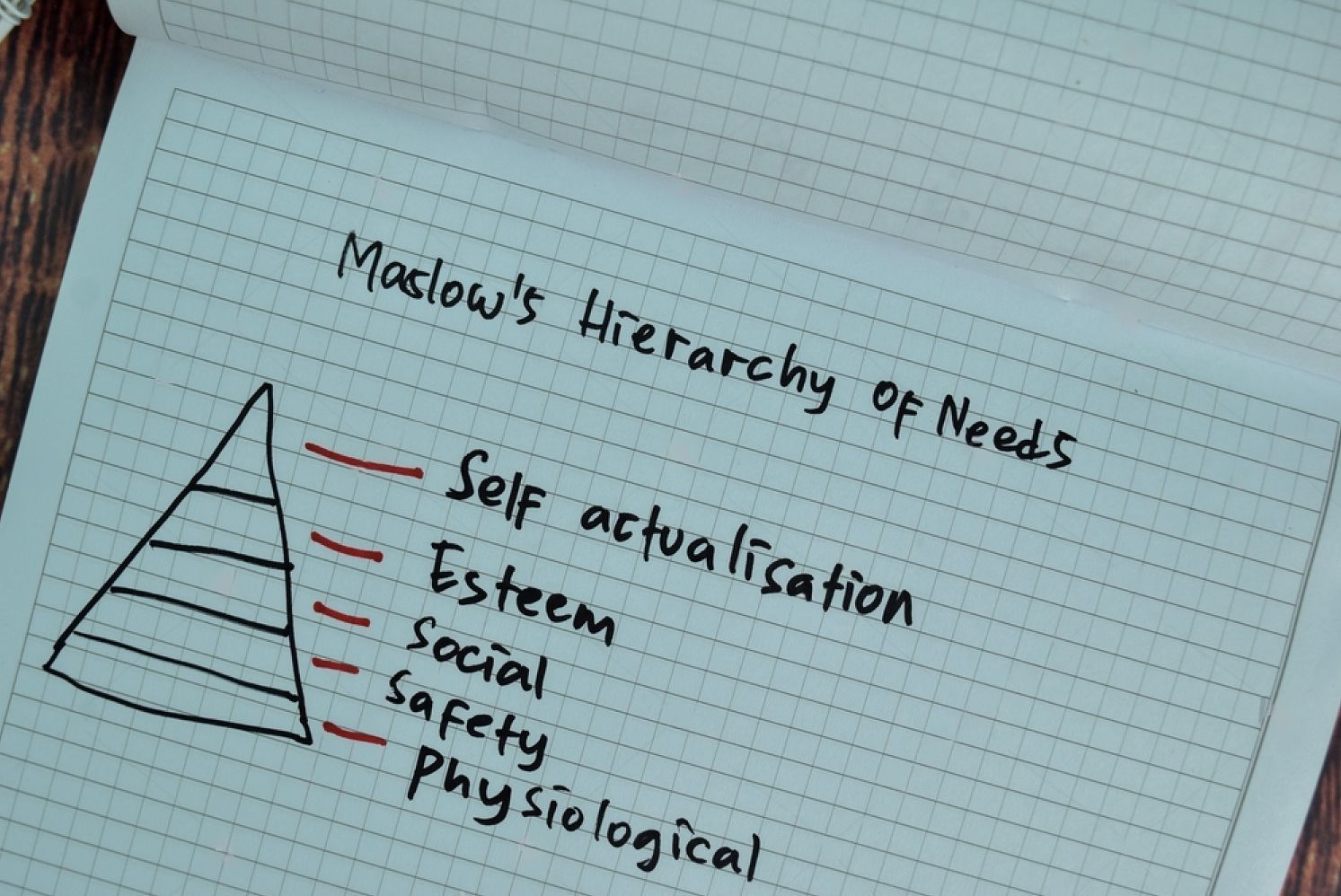Blog
Posts by Dr. Wallace

November 25, 2024
Financial Genetic Codes: Your Financial DNA and its Effect on Your Relationships Your internal and external ecosystems play a significant role in shaping how you view and interact with money. Internally, your beliefs, emotions, and experiences with money form the foundation of your financial behaviors. Externally, societal influences, family dynamics, and economic conditions further mold your financial mindset and actions. The by-product of all of these internal and external factors is your financial genetic code—much like “financial DNA”—which is hard-wired into your brain and plays a role in every aspect of your financial life. In the Generational Wealth Model, we address Financial Genetic Codes in Stage 2, where we break down the makeup of your financial system that is holding you back from creating healthier and more sustainable financial decisions moving forward. Your Financial Genetic Code affects many other aspects of your life, including how you interact with others. In this article, we are going to dive deeper into what Financial Genetic Codes are and how they affect your relationships so that you can understand why it’s so important to address your financial makeup before it negatively impacts your interpersonal relationships. What Is a Financial Genetic Code? Your financial genetic code is a product of all of your internal and external ecosystems (Stage 1 of the Generational Wealth Model). All of the factors, both “walls-in” and “walls-out”, alter the financial moves and decisions you make going forward. Internal Aspects Internally, early experiences and learned behaviors influence your psychological framework around money. If you grew up in a household where money was a source of stress or conflict, you might internalize anxiety about financial matters. These early experiences can create a subconscious link between money and negative emotions, leading to financial trauma. Financial trauma can manifest as a fear of spending, compulsive saving, or avoiding important discussions around finances. If your parents argued frequently about money, you might develop a tendency to avoid financial discussions in your own life, out of fear of conflict or judgment. In addition to financial traumas, personal experiences such as job loss, debt, or financial instability can create lasting imprints. A history of financial instability might cause you to approach money with a scarcity mindset where you are constantly worrying about not having enough.

October 9, 2024
Implementing the Generational Wealth Model in Financial Services As a financial professional – whether a financial counselor, therapist, educator, advisor, or planner – it’s your responsibility to understand where your clients are in their financial journey. You are the one who is entrusted to walk them from where they are currently to the life of prosperity and security that they’re craving - in essence, you’re acting as their financial fiduciary. While there are countless vehicles that you can implement to help your clients achieve these results, you need a system in place that can work for every client, no matter what level they’re starting from. Some clients come in with pre-existing beliefs and mindset blocks from their past. Some come with a leg-up, and some inherit wealth. Some clients have had in-depth money conversations at home, while others need help understanding how to manage their money or achieve their financial goals. No matter where your clients are in their journey, it would be best to have a system that can meet them where they are and walk them through all of the necessary touchpoints to achieve their goals, whether financial well-being or establishing wealth that can last and withstand future generations. That’s where the Generational Wealth Model can elevate the industry. The Generational Wealth Model (see above) is a seven-stage model that walks you through the process from understanding your client’s internal and external ecosystems to establishing longstanding generational wealth for generations to come. In this third installment of my five-part series (check out the rest for information about the model and how to navigate each of the seven steps), I will discuss how the Generational Wealth Model applies to financial service providers and how they help their clients.

August 7, 2024
The Seven Stages of the Generational Wealth Model To successfully reach your financial goals, whether that is improving your spending habits or creating lasting wealth for future generations, it all starts by identifying one's past and current financial traumas, anxieties, and behaviors. The first step to making financial well-being possible is to craft and navigate a plan. Therefore, creating prosperity and security without taking self-inventory and working through one’s past will require you to participate in mental gymnastics that can hinder your ability to create a GPS towards prosperity and security. Working through this financial ecosphere can begin the incremental change in your existing money story. So how do you do this? Unfortunately, when it comes to rewriting your money story, many financial models fall short. They provide you with some structure to follow as you move forward; however, these financial models are, for the most part, unable to meet you where you are while retrospectively reviewing events and environments that make up your financial genetic code. That’s where the Generational Wealth Model changes the landscape and makes sustainable financial well-being and generational wealth for future generations accessible to everybody. The Generational Wealth Model walks you through seven stages that lead to creating generational wealth that you can strategically allocate for future generations. The Generational Wealth Model addresses the accumulation of knowledge and assets, establishing a basis of financial stability and prosperity that can support your family for long-term sustainability for generations. In today's always-changing economic landscape, having a systematic approach to building and preserving wealth is more crucial than ever. By understanding and implementing the Generational Wealth Model, you can break the cycle of financial struggle, safeguard your assets, and pass on a robust financial foundation to your descendants.

June 4, 2024
Securing Tomorrow: The Generational Wealth Model When it comes to financial well-being, it can be hard to create an action plan to achieve financial well-being if you don’t know precisely what that means. When it comes down to it, financial well-being means something entirely different for everybody. Whether your current goal is to create an emergency fund or you’re looking to create a retirement plan to keep you afloat as you transition out of work, the goalpost for financial wellness can change for the rest of your life as your lifestyle changes and your needs adapt. You may think of financial literacy as the first step to financial wellness, but you can’t lump it into one linear process. Achieving financial literacy is a holistic process that can take your entire life. It would be best to have an actionable plan that meets you where you are in your journey. So, how do you create a plan that walks you through every stage of your life? The Generational Wealth Model The Generational Wealth Model empowers you to create a financial game plan that addresses your past, present, and future to help you achieve financial well-being for yourself and generational wealth for future generations. The Generational Wealth Model meets you where you are while pinpointing the other stages you need to work through to achieve financial success. The best part about this model is that it allows you to take a zoomed-out look at your current situation and see where you need to solidify your foundations to move on to the next stage. Generally, when people talk about generational wealth, they’re talking about handing down financial assets from one generation to the next so that future generations can benefit from your financial well-being. While this is a giant portion of the idea behind generational wealth, financial assets are only a part of the equation. You also want to pass down the financial knowledge you establish throughout your life so that your descendants can benefit from your financial mistakes, successes, and the education you have gained during your journey.

September 1, 2023
Let’s get candid regarding our conversations related to money. For some, the mere thought evokes anxiety like an imminent dentist visit – you know what I am talking about - the root canal you look forward to. However, fear not; I will tackle this topic with sensitivity and respect – I mean, who looks forward to a root canal? So, the question begs, when money comes to mind, does your financial anxiety about paying bills overshadow that luxury purchase you’ve been saving for? In my consultations, we often dance around this theme - balancing today’s cravings with the wants of our tomorrow. So, taking a page from the legendary Hall of Fame basketball coach John Wooden: "Failure To Plan Is Planning To Fail." Therefore, this blog will fuse Abraham Maslow's renowned Five Hierarchy of Needs model, encapsulating his theory to create a GPS for success, directing you to a more prosperous financial life. So, can Maslow's iconic Five Hierarchies of Needs model be the northern star of your financial journey?
Schedule an individual or speaking engagement with Dr. Wallace today.
© 2025
All Rights Reserved | Dr. Joaquin Wallace



